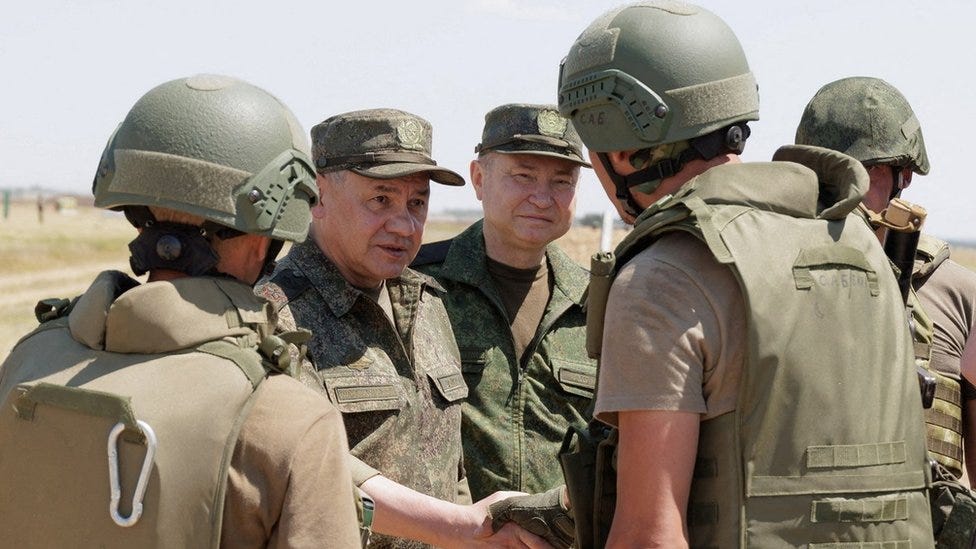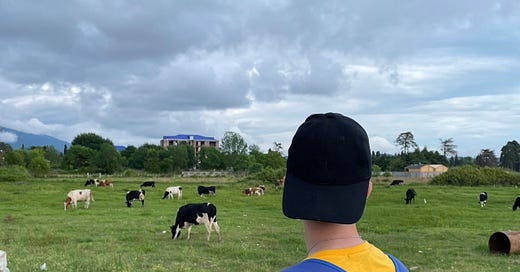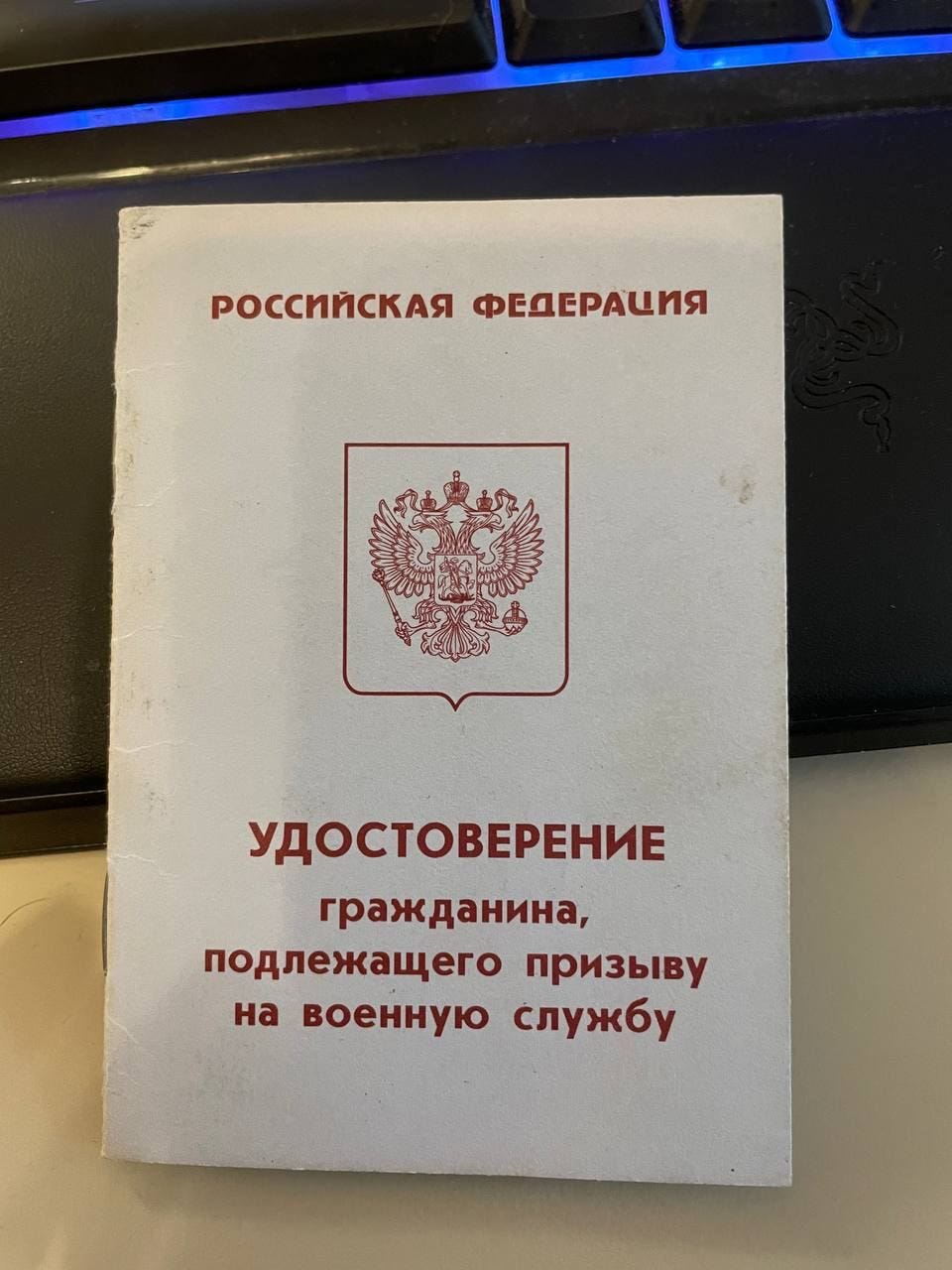Russia conscription laws change, leaving some fearful of Ukraine war call-up
As Russia increases the age limit for conscription, we speak to men afraid of being called up to Ukraine.
By Olga Ivshina.

"Now I live in a state of constant fear. I can't plan anything," says Peter, 27.
He is a salesman living in St Petersburg - but he is now at risk of being called up to fight as part of the Ukraine war.
At the end of July, Russia raised the maximum conscription age by three years, widening the pool of men that can be called up to serve. Peter is one of millions affected by this change.
Before, all healthy men in Russia aged between 18 and 27 had to serve one year of compulsory military service. Conscription was carried out twice a year.
Now, all men up to 30 years old can be called up.
"I was going to get a mortgage this year and buy a flat for our family," Peter tells the BBC. "My wife and I were discussing plans for the future. Now everything is on hold.
"From next January I can be called up to serve and sent to Ukraine. I don't want to join the army, I don't want to take part in this war and die for someone else's goals."

The Russian parliament has also passed a bill that significantly increases fines for those who fail to show up at an enlistment office after they get a draft notice.
They can be fined up to 30,000 roubles (about £250/$315) when the law comes into force on 1 October. That is 10 times the current maximum fine.
Last autumn, when the government announced a mobilisation of 300,000 reservists, tens of thousands of men left Russia. Now, officials have imposed a new law that prohibits conscripts from leaving the country once they receive their draft notice.
'They kept calling me'
Alex is 30 and works at a factory in Moscow. His position is considered critical, so he was promised a document that gives him immunity from being drafted, he says.
"Two weeks ago I suddenly started getting numerous calls and messages from the military enlistment office. They were telling me I must come and register as being immune to the draft," he tells the BBC.
"I was in doubt but eventually decided to go, because they kept calling me," he says.
To his surprise, military enlistment officers started telling him that "he must be a real man and not hide behind his papers".
Then, he says, one of the officers took his documents and stamped it, obliging Alex to join the army in case of mobilisation. He tried to protest.
"The officer became gloomy and told me that [the] 'motherland has given a lot and that men are born to be soldiers. So now I must be ready to fight and die for motherland.'
"I said that I don't want to fight or die - I want to see my daughter grow and live in peace. [The officer] reminded me that if I fail to show up, I may get up to 15 years in prison," says Alex.
'If go to the dentist, they can send me to war'
In April, Russian lawmakers also adopted another law which de-facto creates a digital conscription notice system.
It allows call-up papers to be served online instead of in person, greatly increasing the chance of finding those who try to avoid joining the army.
Alex says he now fears that wherever he goes, the government will keep an eye on him.
"I am afraid that even if I go to the dentist, they can catch and send me to war.
"My anxiety has reached its maximum levels. I try to look calm not to stress my wife and daughter but they still see that I am struggling."
At the start of the invasion, Russia's President Vladimir Putin promised that conscripts wouldn't take part in active combat. However, there is evidence that at least some conscripts have been deployed to fight in Ukraine on a number of occasions.
The BBC's Russian Service has confirmed that at least 57 conscripts have been killed during the past 17 months of invasion.
Currently, hundreds of conscripts are used to guard the Russian-Ukrainian border.
"Our boys are deployed to the border with Ukraine. Some were already killed, others are wounded," says Valentina, whose 19-year-old son was conscripted to the army last autumn and was sent to Bryansk region, which borders Ukraine.
"Rockets are constantly flying there, Russian positions are constantly being fired at from drones.
"Is this really a suitable task for conscripts? They have got almost zero training. Where are the border guards and professional units?"
She has written numerous complaints to military officials and the prosecution office, she says, without receiving a substantial response.
Russia is thought to have sustained heavy casualties in nearly a year and a half of fighting, but the country's defence ministry is reluctant to release figures.
An independent investigation conducted by the BBC Russian Service, together with independent Russian website Mediazona, has confirmed the names of more than 29,000 Russian fighters who were killed during the invasion.
This includes both Russian servicemen and individuals fighting for the Wagner mercenary group. It is a bare minimum figure for Russia's total war losses, but the real number is likely to be at least twice this amount.
"My father supports Putin so after the start of the invasion we barely speak," says Peter, the 27-year-old salesman in St Petersburg. He has recently spoken to lawyers who said that, legally, he should be given reservist status, because he turned 27 before the new law came into force.
However they immediately added that if he goes to the military office trying to check his status, he may be drafted on the spot.






